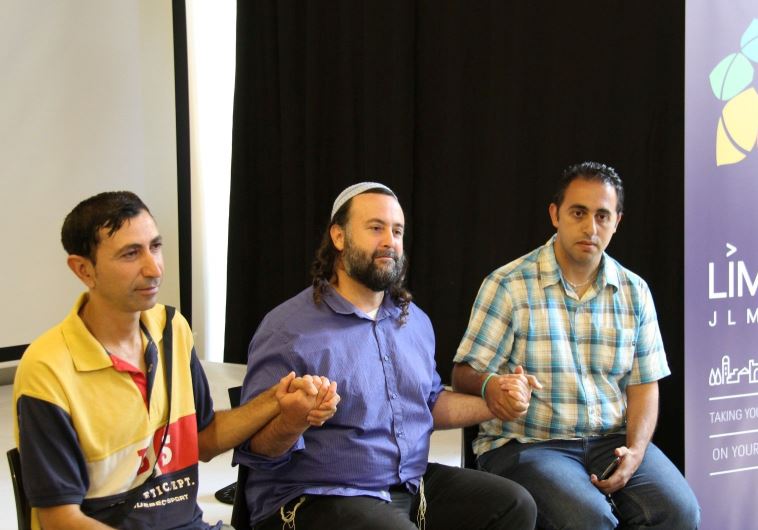Limmud comes to Jerusalem
The Limmud International Jewish learning organization held one of its renowned conventions over two days on Thursday and Friday in Jerusalem.
 (From L) Ra'ed Hashimeh, Eliyahu McLean, and Rev. Daniel at Limmud JLM(photo credit: DANIEL V. RAWLINGS)Updated:
(From L) Ra'ed Hashimeh, Eliyahu McLean, and Rev. Daniel at Limmud JLM(photo credit: DANIEL V. RAWLINGS)Updated: